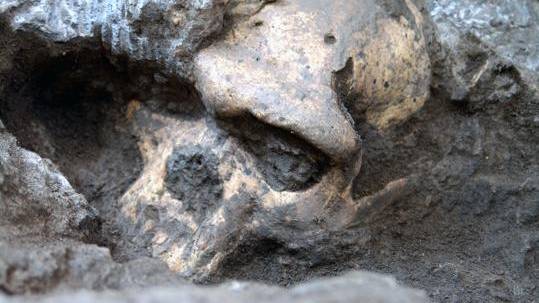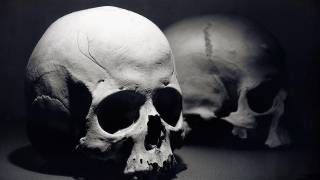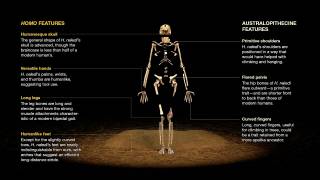Ancient skull challenges understanding of human evolution
Source: boston.com
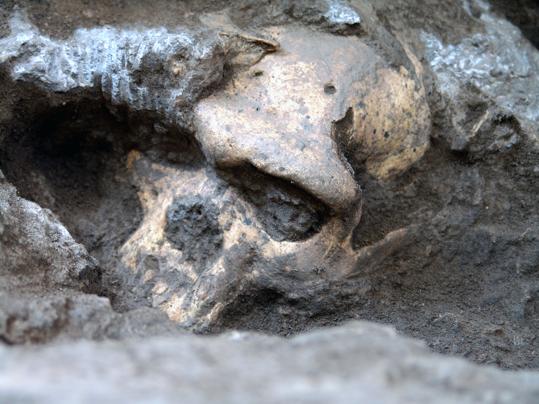
The broad face, large teeth, and snout-like skull of an exquisitely preserved 1.8-million-year-old skull discovered near a medieval town at the crossroads of Europe and Asia, challenges our fundamental understanding of modern human origins, according to a detailed analysis of the fossil unveiled Thursday by an international team of scientists.
The prevailing view of early human evolution holds that we had a panoply of primitive predecessors, which scientists identified by examining fossil remnants with varied features: Homo erectus, Homo rudolfensis, Homo habilis. The new early human skull, unprecedented in how remarkably intact and old it is, blurs those boundaries, said the team, which includes a Harvard researcher. The skull’s mosaic of features challenges the idea that those previous specimens are each a different species.
The skull was found in Dmanisi, Georgia, near four others from roughly the same time period that incorporate a broad spectrum of bone structure, bolstering the argument that scholars may have underestimated the natural diversity that existed within a single species of early humans.
“This calls into question what has been in paleonathropology a standard model for a long time,” said G. Philip Rightmire, a paleoanthropologist at Harvard University and a member of the team that published the provocative finding in the journal Science. “Perhaps that thinking that has become so standard over the last 25 to 30 years is, really, to some extent a house of cards that is now going to collapse.”
Rightmire began traveling to the country of Georgia more than a decade ago, where some of the oldest human fossils outside of Africa have been dug up. He worked in the field and examined specimens in person at a museum where excavated fossils are housed. He and colleagues based their provocative argument on an analysis that incorporates sophisticated medical imaging and statistical analysis of the skull’s shape, but he said his own study was largely informed by more traditional methods.
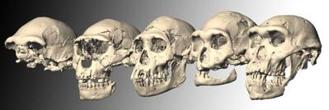
The five skulls unearthed at Dmanisi, the last and most complete skull on the right.
“Nothing quite beats sitting with the original fossil on a table top in front of you, being able to move it or turn it over, and check over the fine morphological detail,” Rightmire said in an interview.
[...]
Read the full article at: boston.com
Tune into Red Ice Radio:
Troy McLachlan & Theodore Holden - Cosmos in Collision: Antique Solar System, Neanderthals & Modern Man
Lloyd Pye - Human Origins, The Intervention Theory & The Starchild Skull
Steven & Evan Strong - Hour 1 - Aboriginal Origins & Egyptian Glyphs in Australia
Roundtable - Hour 1 - Man’s Genesis & The Future Direction of Humanity
Robert Schoch - Hour 1 - The Mystery of the Sphinx
Laird Scranton - The Science and Symbols of the Dogon & The Cosmological Plan
David Hatcher Childress - The Crystal Skulls & Easter Island Mystery
David Hatcher Childress - Ancient Civilizations & Megalithic Monuments
Michael Cremo - Forbidden Archeology & Human Devolution
Danny Vendramini - Them & Us: Neanderthal Predation Theory
